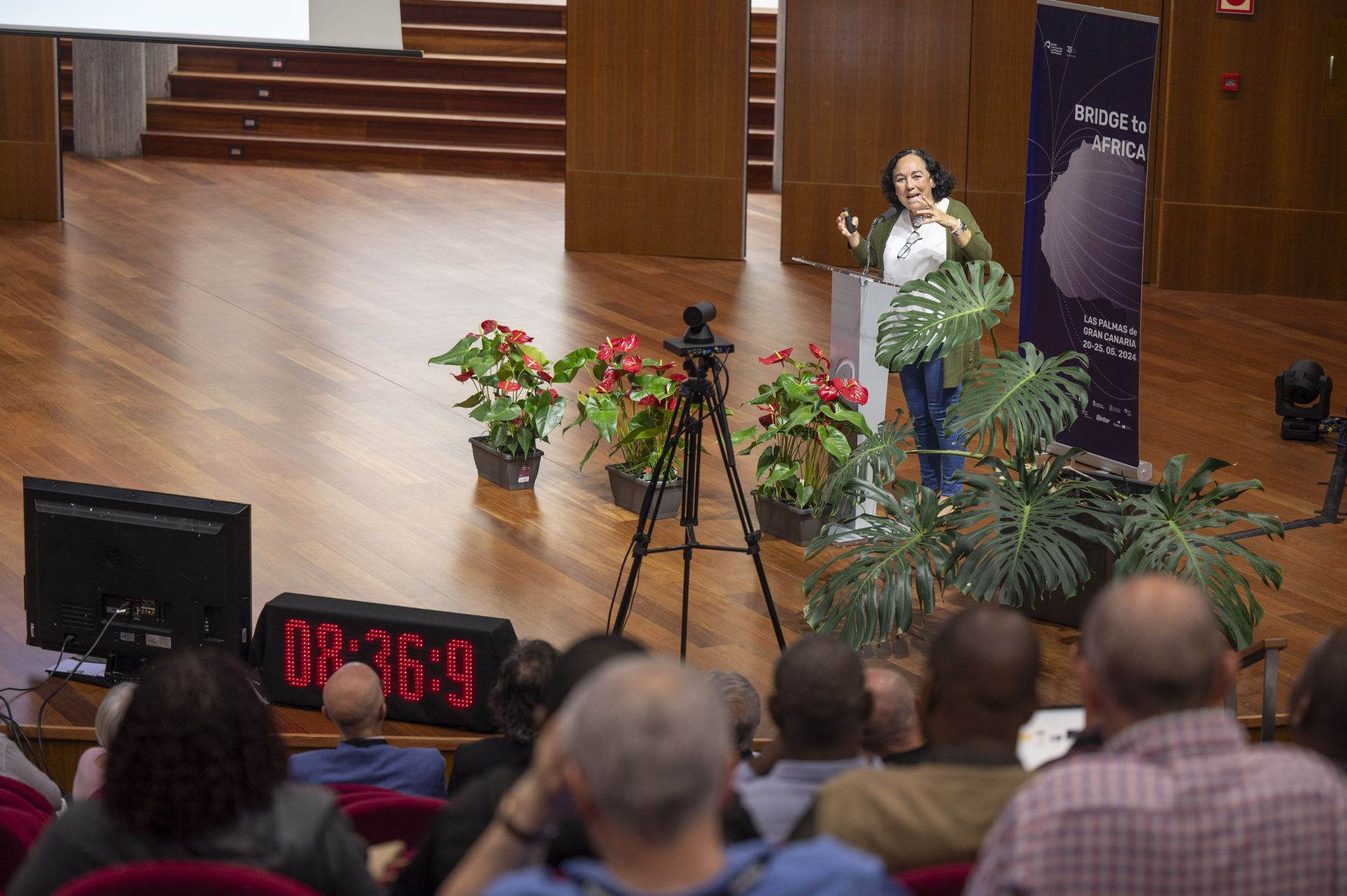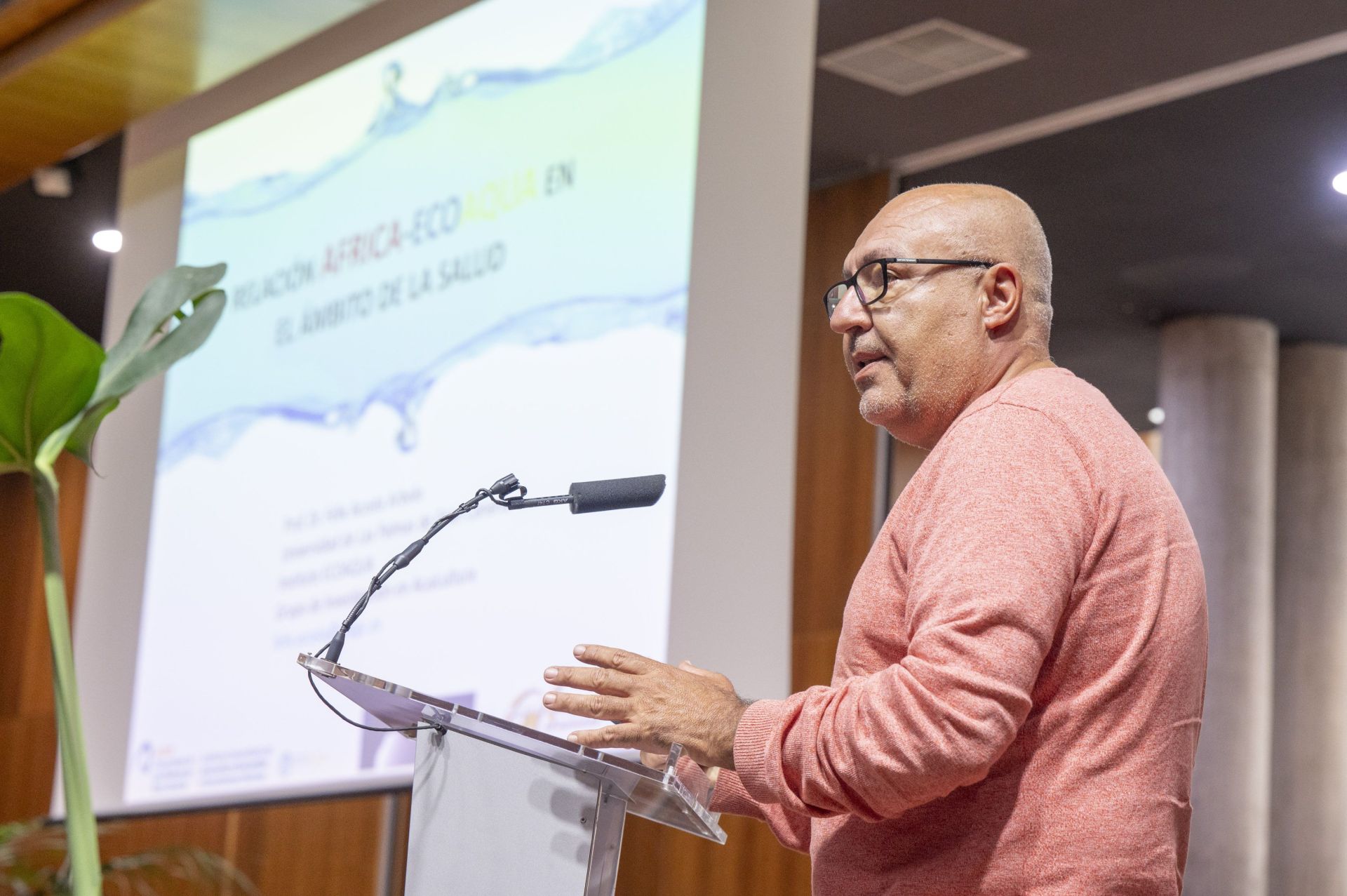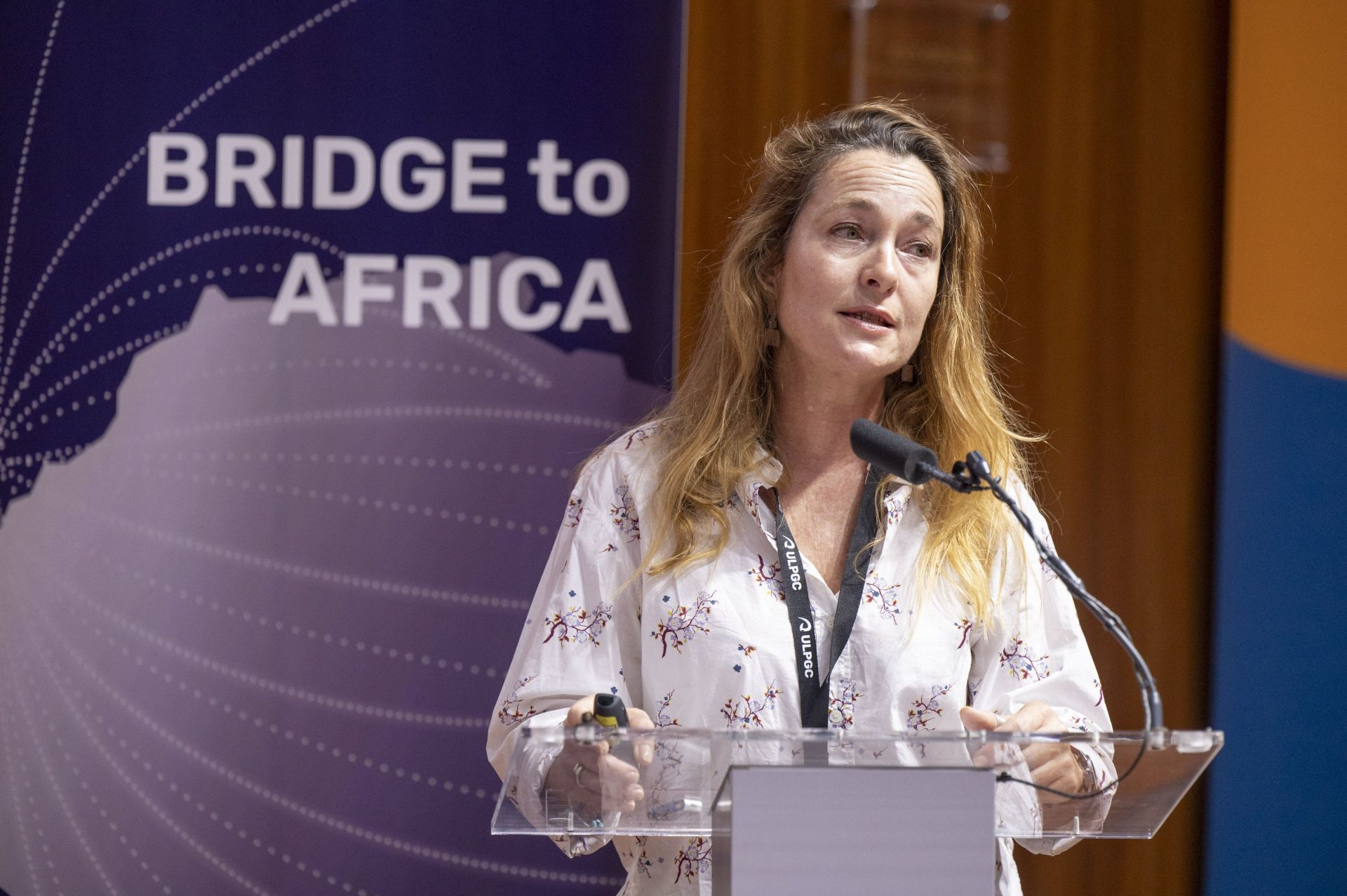Researchers Ricardo Haroun, Gercende Courtis, Félix Acosta, Lidia Robaina and Marisol Izquierdo participate in the Congress commemorating Africa Day and the 35th Anniversary of the ULPGC.
Five researchers from the University Institute for Research in Sustainable Aquaculture and Marine Ecosystems (ECOAQUA), attached to the University of Las Palmas de Gran Canaria (ULPGC), are participating this week in the first 'Bridge to Africa' conference, organised by the Vice-Rectorate for Internationalisation, Mobility and International Projection of the ULPGC in collaboration with Casa África, as part of Africa Day and the 35th Anniversary of the University.
The event was inaugurated on Monday 21st May at the Assembly Hall of the ULPGC, in the presence of the ULPGC's rector, Dr. Lluís Serra Majem, and the director of Casa África, José Segura, among others. Until Friday, it will bring together experts from several academic and research institutions, as well as local and regional authorities, with the aim of strengthening ties between Europe and Africa through scientific and technological cooperation, and to reinforce the institutional commitment to development and transcontinental cooperation.
In this context, five prominent ECOAQUA researchers, Ricardo Haroun, Gercende Courtois de Viçose, Félix Acosta, Lidia Robaina and Marisol Izquierdo, are participating in the event with scientific research work and training proposals from the university institution, which address crucial issues for sustainable development and international collaboration in the field of aquaculture and marine biology in Africa.
Environment, Health and Economy from Science in Africa
Professor Ricardo Haroun, director of ECOAQUA and member of the BIOCON Research Group, took part on Tuesday, 21st May, in the first session of the congress, dedicated to the Environmental Axis, during which he emphasised the importance of working on joint initiatives to address the environmental challenges affecting both Europe and Africa and detailed some of the research projects of the top research centre in various African countries.
For their part, three researchers from ECOAQUA's GIA Group, Gercende Courtois de Viçose, Félix Acosta and Lidia Robaina, took part on 22nd May in the congress sessions dedicated to the Health Axis.
 Lidia Robaina explains the projects in which ECOAQUA participates at ‘Bridge to Africa’.
Lidia Robaina explains the projects in which ECOAQUA participates at ‘Bridge to Africa’.
Through these researchers, the scientific institution has made known different collaborative work being developed on the African continent, such as the AquaVitae project, focused on promoting sustainable production protocols in aquaculture; the project named 'Cooperation for unemployed women in the municipality of Tarrafal, Santiago Island, Cape Verde'; or the Islandap Advanced project, focused on the use of a multidisciplinary network to study and share circular economy solutions in island territories that include the African coast.
Professor Felix Acosta shared with the audience some of the training proposals developed by the ECOAQUA Institute in Africa, such as the Master's Degree in Marine Cultures, the PhD programme in Sustainable Aquaculture and Marine Ecosystems, and the Erasmus + programme grants that benefit numerous African students.
 Félix Acosta, GIA Group.
Félix Acosta, GIA Group.
Support for Ghana’s female fishmongers by Marisol Izquierdo on Friday
Finally, this Friday 24th May the ULPGC professor, former director of ECOAQUA and researcher of the GIA Group, Marisol Izquierdo, will take part in the session of the Economic Axis of the Congress, to which she will bring the recent experience of the 'Project to Support the Management and Processing of Fish by Ghanaian Fishmongers'.
Through this initiative, ECOAQUA has collaborated with the African country to improve the quality and value of its fish products, and promote sustainability and economic development of local communities and their women, implementing training programmes to improve the knowledge of its female fishmongers in terms of efficiency, food safety and hygiene in the processing, storage and distribution of fish products.
 Gercende Courtois, during his intervention at the Health Axis of the Bridge to Africa Conference.
Gercende Courtois, during his intervention at the Health Axis of the Bridge to Africa Conference.


